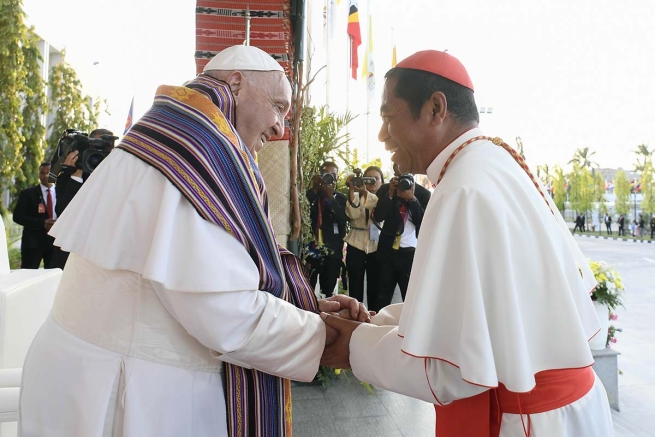The cardinal recalls the visit of Saint John Paul II, which took place 35 years ago when Dili was the capital of a province of Indonesia, and underlines that Bergoglio was the first Pontiff to come to Timor-Leste since the country became independent. "The government, the Church and all the people have contributed to the success of this visit", highlights the cardinal, stressing that "the strength of the faith in this young country has moved the Pope himself and almost the whole world."
Therefore, focusing on the fruits of the presence of the Pontiff, Cardinal do Carmo da Silva recalls, in the first place, the motto of the apostolic journey, namely "Your faith is your culture", underlining the importance of the relationship between faith and reason. A theme, he explains, that in the last month has also been explored at an academic level and among government leaders. Looking, moreover, at the long "process of building the country, of building a new identity as a nation", the Timorese archbishop remarks how the visit of the Bishop of Rome served to "affirm and confirm the national identity and to tell the Timorese that no matter how small the country is: you are Timorese and you are Catholic and you have your own identity."
The hope, therefore, is that the local population "really becomes rooted in these processes of cultural identity and faith."
Finally, commenting on the Pope's final speech in Dili – the one given on 11 September during the meeting with young people at the Centro de Convenções – Cardinal do Carmo da Silva recalls the "two very strong messages" indicated by the Pontiff to the youth: "First: move forward, make noise, be happy, be joyful. And second: respect the elderly, grandparents, parents and children."
"Both messages are addressed to the people of God" he adds. "When all of us, young people and children, continue to cultivate this attitude in our hearts and respect others, then I believe this will be a great step forward to make a difference. And it begins today, after the Pope's visit."
Bernardo Suate
Source: Vatican News


